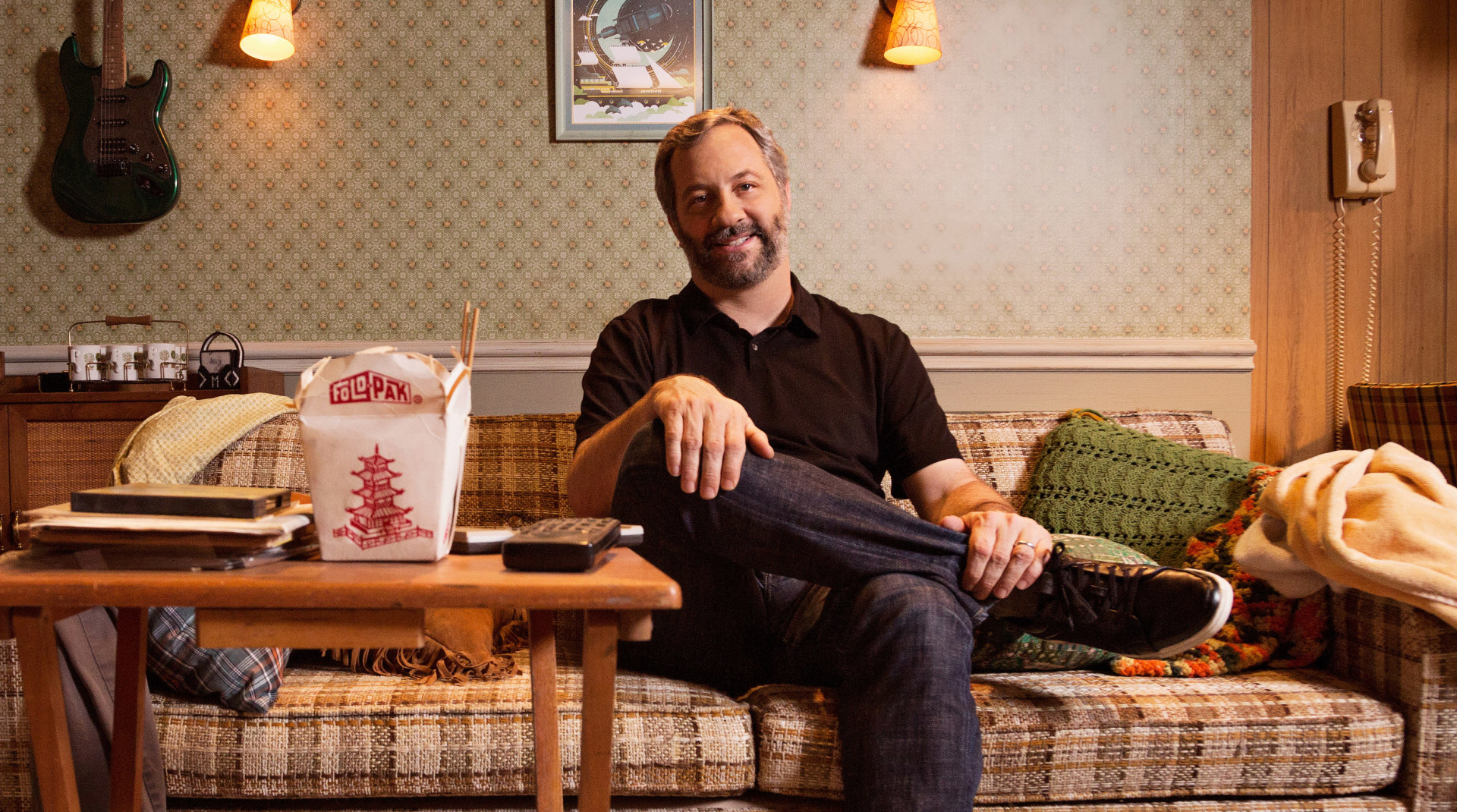How to Tell a Good Story With Tips From Judd Apatow
Written by MasterClass
Last updated: Sep 1, 2021 • 4 min read
Whether you’re practicing for a job interview, writing a script, or simply want to tell a good story, Judd Apatow shares tips for improving your storytelling.
Learn From the Best
How do you tell a great story? Judd Apatow certainly knows. Judd is considered a great storyteller and one of the most sought-after comedy minds in the business. He has been closely associated with many of the biggest comedy films and hit television shows over the last decade and a half, including The 40-Year-Old Virgin, Knocked Up, Funny People, Trainwreck, Superbad, Bridesmaids, Pineapple Express, and both Anchorman films.
How Did Judd Get Into Comedy?
Younger, smaller, and less athletic than most of his classmates, Judd grew up as an outsider. He spent a lot of time alone and felt angry that he didn’t fit into the cultural system that favored athletic, handsome people. He became obsessed with the Marx Brothers, who taught him to question that system. Judd realized that the system was actually bullshit, and that comedy was a way to make fun of it.
When Judd’s mother got a job at a comedy club, Judd was able to get in for free and watch stand-up comics perform. Then, he created a radio show on his high school’s station called Club Comedy, for which he interviewed comedians, gleaning advice from the likes of Sandra Bernhard and Steve Allen. Early in his career, Judd learned how to pay rent while pursuing his comedic aspirations—by getting a day job that put him in the business, but allowed him to be creative in the evenings.
But Judd is, beyond anything else, a good storyteller. And you can be, too. Whether you want to give a TED talk on your own personal story, are practicing for a job interview or public speaking engagement, or trying to write a novel or screenplay, become a more confident storyteller with Judd’s tips, below.
How to Tell a Comedic Story in 5 Steps With Judd Apatow
1. Find Your Grace Note
When you’re telling stories, you have to connect with your audience. Try to tack onto your stories what Judd calls a grace note, a moment or line of dialogue that expresses a human truth which touches the heart of the viewer, but stays true to the sense of humor and personality of the character(s) involved.
“That’s usually what I’m trying to do,” Judd says. “Tell a heartfelt, great story that touches you, to show how people try to grow, how they try to find happiness. And every once in a while, they pee with a boner.”
2. Make It Relatable
Judd contends that when you are being personal as a comedian, you are actually expressing your opinion about something or highlighting an absurdity in your own life. He gives the following example: One of his two children has gone to college. His remaining daughter is unhappy that she is the only one left in the house with Judd and his wife, because four people is a family, but three people is a child observing a weird couple.
Judd calls this a short observational joke. Judd has learned that the audience will cue a comedian as to which part of a joke is relatable, understandable, and meaningful. You get the most laughs when the audience recognizes themselves in your story or joke.
Analyze one of the primary relationships in your life—with a partner, child, boss, employee, or friend—searching for humor in a basic observation about it. Make sure your observation is not dependent on context or knowledge the audience won’t have—for example, it shouldn’t be an inside joke that only people in your line of work will understand.
3. Start With the End
When you’re crafting a funny story, you can turn one joke into many by building a story around a basic punch line. Once you know the core of the story, you can illuminate different parts of it.
For example, in his Netflix special, Judd tells a story about throwing the first pitch at a Mets game. He identifies his punch line: he threw the baseball very badly. To build a story around that punch line, Judd describes every moment leading up to the pitch, relating to the audience his nervousness and confusion prior to the throw. Judd also brings in a visual—an utterly ridiculous photo of himself throwing the ball— which he analyzes in depth. All of these different components added up to a 10-minute story.
4. Add Rich Details
A good story is reinforced by rich supporting characters. Judd says specificity is your best friend. The details are what make a story funny and unique.
In The 40-Year-Old Virgin, much of the comedy is in the distinctive setting and character quirks. Everyone has a boss, but the 40-year-old virgin’s boss is inappropriately sex obsessed. Most stereo stores have something displayed on the televisions at all times, but only in Judd’s film does an incessantly played Michael McDonald DVD drive Paul Rudd’s character crazy.
5. Create Your Comedic Persona
Performing on stage is about creating a persona. You want the audience to connect to your character, not just to what you’re saying. If your act is not going as planned, embrace it. Learn to look at your nerves from a different perspective and lean into the bomb.
When Judd was young, he was told by veteran comedians that it would take seven years to shape his persona, so get comfortable with the fact that for a long time, you’re probably going to suck. Be patient and keep working.
Ultimately, Judd’s stories work because they’re funny and serious; relatable and preposterous. Find a story that hits people in the gut—and also makes them laugh—and you’ll know you’ve figured out how to tell a good story.
